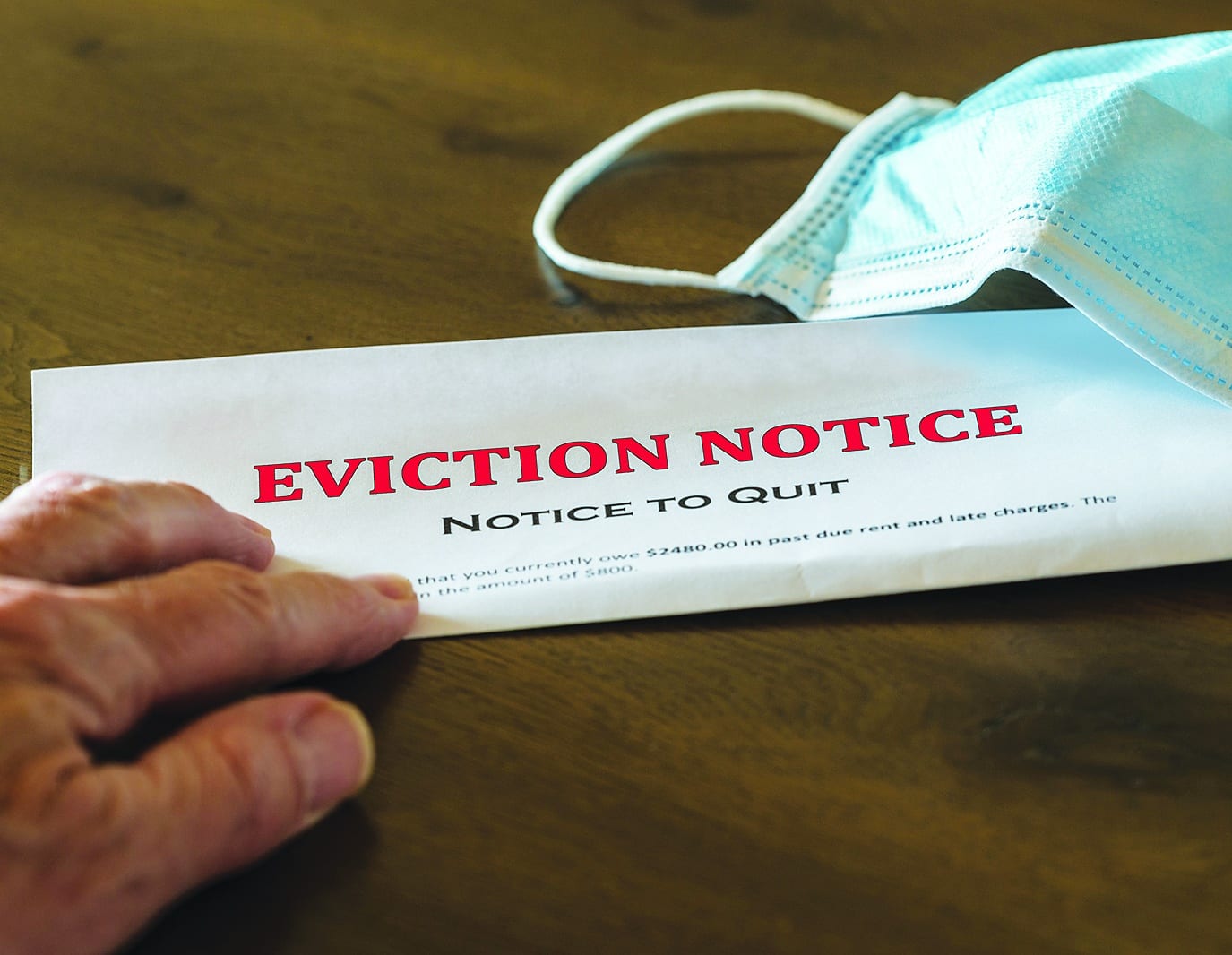A major local and national affordable housing landlord announced it plans to cut eviction rate sin half across its properties over the next five years with a combination of tenant outreach, early intervention, payment plans and incentives for property managers.
Boston-based WinnCompanies‘ plan will impact 160,000 people and, its CEO hopes, will encourage other landlords to follow suit. The firm’s WinnResidential unit owns or manages 61,0000 units in 600 apartment properties in 16 states and Washington D.C.
The company owns or manages three properties in New Hampshire: Portsmouth’s Residences at Portwalk Place, Dover’s Orpheum and Laconia’s Wingate Village.
“The payment of rent is critical to the ongoing viability and quality of our housing stock, but we believe this plan can be the blueprint for a national policy model to reduce evictions and homelessness going forward. This comprehensive policy is intended to outlast the current crisis triggered by the coronavirus pandemic and recession,” WinnCompanies CEO Gilbert Winn said in a statement. “It’s time to improve the way our industry thinks about these issues. Our goal is to make eviction truly the last resort in cases of financial hardship by making education, two-way communication, early intervention and hands-on assistance our first lines of defense.”
The program, a version of which was test-driven last year as the COVID-19 pandemic swept through the nation and put millions out of work, has four components:
- Stronger outreach to residents that will educate every household in a WinnResidential property about public and private rental assistance programs, regardless of how much a tenant makes or whether they are behind on their rent..
- Early, coordinated, proactive intervention to get resources to tenants as soon as they report hitting rough financial waters.
- “Achievable, affordable and sustainable” payment plans.
- Incentives and targets for property management staff and legal counsel to set and reach housing stabilization goals that lower eviction filing rates in the company’s properties.
The plan, the company said in its announcement, works in part thanks to its varied funding streams. More than half its income comes from tenant payments instead of government subsidies, and over one-fifth of its units are market-rate apartments, spreading risk.
“By and large, our properties are working communities,” Winn said. “Our residents include high income earners as well as families on governmental assistance, and our clients range from private, for-profit owners to community development corporations and leading non-profit groups. This program is meant to aid in the stability of housing for all income earners. Everyone should have a safety net when they fall on hard times through no fault of their own.”
The new program does not waive tenants’ responsibilities under lease agreements and will not apply to tenants engaging in criminal behavior, violence or who are deemed a danger to the health and safety of their neighbors. Residents who do not communicate and do not participate in the program will be subject to eviction proceedings, WinnCompanies said.
The company hopes to lower its costs including lost rent, vacancy, legal fees, repairs, turnover and leasing, which it said can range between $2,500 and $8,000 per case. In addition, the company hopes to prevent negative impacts on tenants lives as a result of evictions, which researchers say contributes to homelessness, joblessness and educational setbacks for tenants’ children, in addition to the drag such social ills have on local economies.
“From health to economic mobility, non-payment evictions leave a permanent mark on individual and families,” Trevor Samios, vice president of Connected Communities, the resident services platform of WinnResidential, said in a statement. “Our goal is to flip the traditional approach on its head with a shift to housing stabilization as a comprehensive strategy to intervene to avoid eviction whenever possible. Helping people to stay sustainably in their homes has myriad benefits; it’s good for our residents, for communities, our industry and the economy.”
Some renters facing eviction during the coronavirus pandemic would get extra time to come up with cash under a bill before a House committee earlier this month.
The measure sponsored by Rep. Casey Conely, D-Dover, would require courts to pause eviction cases for 30 days if the renter has applied for help from a federal, state or local housing assistance program.
“This 30-day period just gives people facing eviction this narrow window to pursue this support before they lose their home,” he told the House Judiciary Committee. “It’s a temporary, critical lifeline for tenants facing financial difficulties during the pandemic.”
While there is a federal eviction ban in place, that will expire in March. Conley said his goal is to address the uncertainty around that ban, as well as the lengthy process of applying for assistance. The next round of federal virus relief funding will include $200 million for rental and utility help in New Hampshire, but those programs have yet to be set up.
Nick Norman of the Apartment Association of New Hampshire spoke against the bill.
“We don’t think there needs to be anything else to confuse the eviction process. This is very late to the party. Vaccines are coming out, the $200 million is coming out. We have landlords that are suffering from tenants that have not paid rent since February of last year. It’s just ridiculous,” he said.
The New Hampshire Circuit Court is looking to reduce the backlog of eviction cases caused by the coronavirus pandemic by offering free mediation to resolve landlord-tenant disputes.
The circuit courts in Concord and Claremont will serve as the initial pilot sites for the voluntary program with trained mediators.
“Mediation gives landlords and tenants the opportunity to come up with creative solutions that are beneficial to both parties and tailored to their individual situations,” Margaret Huang, coordinator of the Office of Mediation and Arbitration, said in a statement. She added, “this emergency pilot project could not be better positioned to resolve these cases during the COVID-19 pandemic, when both landlords and tenants may have been seriously financially impacted.”
The Associated Press contributed to this report.


